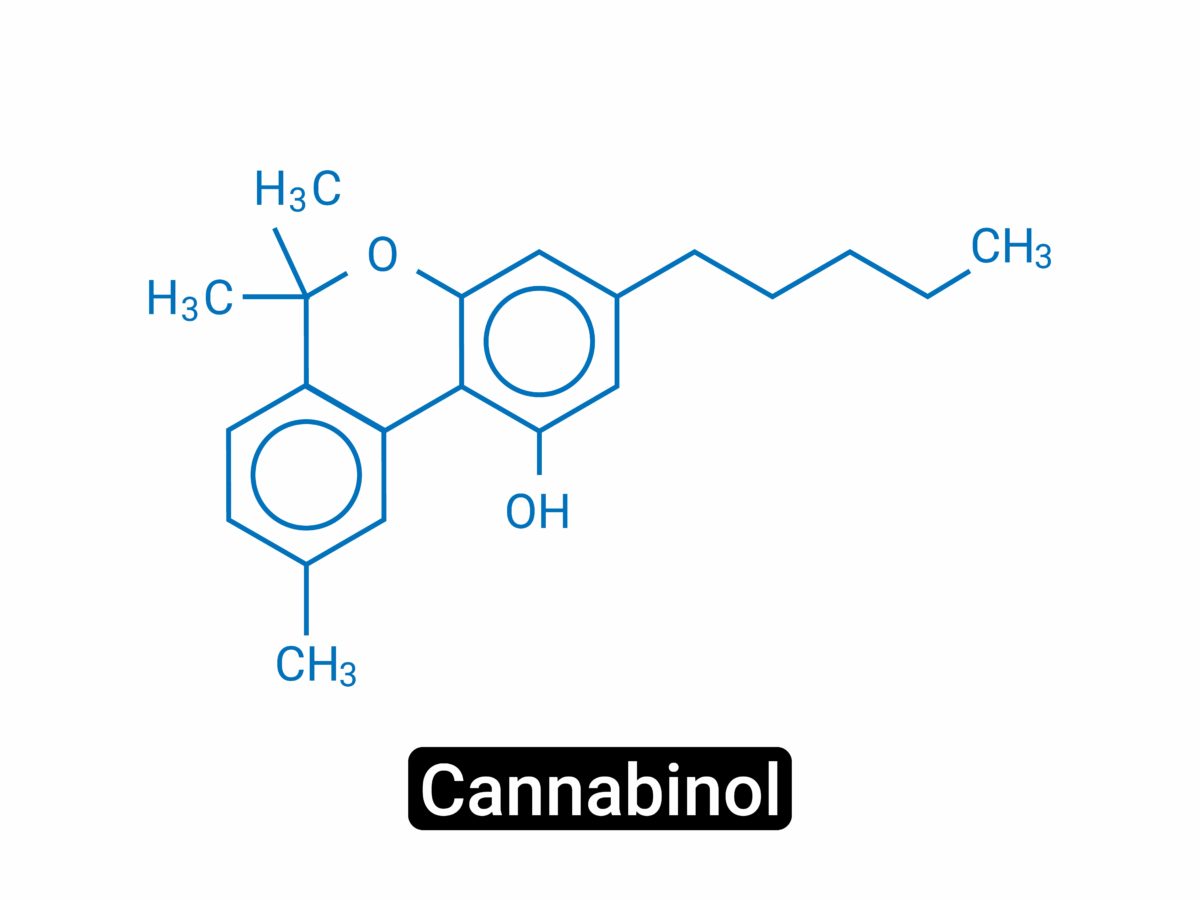Ashwagandha and CBN (Cannabinol) are two natural compounds that have gained significant attention in the world of health and wellness due to their potential therapeutic benefits. While they originate from different sources and have distinct chemical properties, both Ashwagandha and CBN have been studied for their potential to promote relaxation, alleviate stress, and improve overall well-being. In this comparison, we will delve into the characteristics, uses, and potential advantages of Ashwagandha and CBN, shedding light on how these compounds may play a role in enhancing one’s physical and mental health. Understanding the unique properties and effects of Ashwagandha and CBN can help individuals make informed choices when considering their incorporation into daily health routines.
Also Read: The Best CBN Oil For Restless Legs Syndrome
What is Ashwagandha?
Scientific Name
The scientific name for Ashwagandha is Withania somnifera.
Historical Use
Ashwagandha, also known as “Indian ginseng” or “winter cherry,” is a powerful adaptogenic herb with a rich history in traditional Ayurvedic medicine. Its use dates back over 3,000 years in India, where it has been highly regarded for its various medicinal properties. In Sanskrit, “Ashwagandha” means “smell of the horse,” which refers to both its distinct odor and the belief that consuming it may impart the strength and vitality of a horse. Throughout history, Ashwagandha has been used to address a wide range of health issues, including stress, anxiety, insomnia, and immune system support.
Origins and Growth
Ashwagandha is native to the dry regions of India, the Middle East, and North Africa. It thrives in arid climates and is commonly found in regions with well-drained soils. The plant itself is a small shrub that produces yellow flowers and small, red fruit. Ashwagandha’s adaptability allows it to grow in various regions, but it is most commonly associated with India, where it has a strong cultural and medicinal presence.
Primary Compounds
Ashwagandha contains a complex mixture of bioactive compounds, with withanolides being the most studied and prominent among them. Withanolides are naturally occurring steroid-like compounds found in the plant’s leaves, roots, and berries. These compounds are believed to be responsible for many of Ashwagandha’s therapeutic effects. Other notable compounds in Ashwagandha include alkaloids, saponins, and various antioxidants.
Withanolides
Withanolides have been the subject of extensive scientific research due to their potential health benefits. They are known for their anti-inflammatory, anti-stress, and adaptogenic properties. Withanolides may help the body adapt to stressors and promote overall well-being by modulating various physiological processes.
Ashwagandha supplements are widely available in various forms, including capsules, powders, and tinctures. Before incorporating Ashwagandha into your wellness routine, it’s advisable to consult with a healthcare professional, especially if you have underlying health conditions or are taking medications, to ensure it is safe and appropriate for your specific needs.
Also Read: The Best CBN Oil For Irritable Bowel Syndrome
What is CBN (Cannabinol)?
Definition and Relationship to Cannabis
Cannabinol (CBN) is one of the many cannabinoids found in the cannabis plant. It is a minor cannabinoid, meaning it is present in relatively low concentrations compared to more well-known cannabinoids like THC (tetrahydrocannabinol) and CBD (cannabidiol). CBN is derived from the degradation of THC, which occurs when THC is exposed to heat, light, and oxygen over time. As THC breaks down, it gradually converts into CBN. This transformation is why aged or improperly stored cannabis products may have higher CBN levels.
Derivation and Chemical Composition
CBN is derived from the decarboxylation of THC, a process in which a carboxyl group is removed from THC due to factors like heat or time. This transformation changes the chemical structure of THC, converting it into CBN. CBN shares a similar molecular formula with THC and CBD, but with slight differences in arrangement:
- THC (Delta-9-tetrahydrocannabinol): C21H30O2
- CBN (Cannabinol): C21H26O2
- CBD (Cannabidiol): C21H30O2
CBN is typically found in trace amounts in fresh cannabis flowers but can accumulate as cannabis ages or is exposed to environmental factors that promote THC degradation.
Key Differences Between CBN and Other Cannabinoids:
Psychoactivity:
-
- THC: THC is the primary psychoactive compound in cannabis, responsible for the “high” or euphoric effects associated with its use.
- CBN: CBN is only mildly psychoactive, and its psychoactive effects are significantly weaker than THC. Users are less likely to experience a pronounced high with CBN.
Medical Benefits:
-
- CBD: CBD is known for its non-psychoactive nature and a wide range of potential therapeutic benefits, including anxiety reduction, pain management, and anti-inflammatory properties.
- CBN: CBN is currently the subject of ongoing research, and its potential health benefits are less well-established compared to CBD. Some studies suggest that CBN may have sedative effects and could aid with sleep.
Origin and Concentration:
-
- THC: THC is typically present in higher concentrations in cannabis varieties bred for recreational use.
- CBN: CBN is found in minimal concentrations in fresh cannabis but can increase as cannabis ages or is exposed to heat and light.
Legal Status:
-
- THC: THC is regulated and, in many places, subject to legal restrictions due to its psychoactive properties.
- CBD and CBN: CBD and CBN are often considered legal in many regions as they are non-psychoactive and may have potential medical applications.
Also Read: The Best CBN Oil For Trichotillomania
Health Benefits of Ashwagandha
Explore the potential health benefits of Ashwagandha
Stress Reduction:
-
- Scientific Evidence: Ashwagandha is classified as an adaptogen, a natural substance that helps the body adapt to stressors. Numerous studies have explored its potential to reduce stress and anxiety. A study published in the “Indian Journal of Psychological Medicine” in 2012 found that Ashwagandha root extract significantly reduced stress and anxiety levels in individuals with chronic stress.
Improved Sleep:
-
- Scientific Evidence: Ashwagandha may also play a role in improving sleep quality. A 2019 double-blind, placebo-controlled study published in the “Cureus Journal of Medical Science” demonstrated that Ashwagandha supplementation led to improved sleep patterns in adults with insomnia. It is thought to have a calming effect on the nervous system, promoting better sleep.
Immune System Support:
-
- Scientific Evidence: Ashwagandha has been studied for its potential immune-boosting properties. Research published in the “Journal of Ethnopharmacology” in 2009 reported that Ashwagandha extracts enhanced the activity of immune cells, suggesting it may help support the immune system. The adaptogenic nature of Ashwagandha may also indirectly contribute to immune health by reducing stress-related immune suppression.
Anti-Inflammatory Effects:
-
- Scientific Evidence: Chronic inflammation is linked to various health issues, including autoimmune diseases and chronic pain. Ashwagandha has been shown to possess anti-inflammatory properties in studies. A 2015 study published in the journal “PLOS ONE” demonstrated that Ashwagandha extract reduced markers of inflammation in human subjects.
Cognitive Function:
-
- Scientific Evidence: Some research indicates that Ashwagandha may support cognitive function and memory. A study published in the “Journal of Dietary Supplements” in 2017 reported that Ashwagandha supplementation led to improvements in cognitive function and psychomotor performance in healthy individuals.
Anti-Anxiety and Antidepressant Effects:
-
- Scientific Evidence: Ashwagandha may also have potential anti-anxiety and antidepressant effects. A randomized controlled trial published in “Phytomedicine” in 2019 showed that Ashwagandha extract reduced anxiety and improved overall well-being in adults with moderate to severe anxiety disorders.
Also Read: Does CBN Show On Drug Test?
Health Benefits of CBN
Discuss the emerging research on the potential health benefits of CBN
Emerging research suggests that CBN, a minor cannabinoid in the cannabis plant, may offer several potential health benefits, although more studies are needed to confirm these effects. Two key areas where CBN has garnered attention are its potential role in sleep promotion and pain management:
Sleep Promotion:
-
- Scientific Evidence: CBN has been explored for its potential as a sleep aid. Some studies suggest that CBN may have sedative effects and could help individuals fall asleep faster and stay asleep longer. A 2008 study published in the journal “Pharmacology, Biochemistry, and Behavior” found that CBN increased sleep duration in rats.
- Mechanism: The exact mechanism by which CBN promotes sleep is not fully understood, but it may interact with the endocannabinoid system, which plays a role in regulating sleep-wake cycles.
Pain Management:
-
- Scientific Evidence: There is limited research on CBN’s potential for pain management. However, some studies have suggested that CBN may have analgesic (pain-relieving) properties. A study published in the “European Journal of Pharmacology” in 2002 reported that CBN produced significant antinociceptive (pain-relieving) effects in mice.
- Mechanism: CBN’s analgesic effects may be related to its interaction with cannabinoid receptors in the body, which are involved in pain perception and modulation.
Also Read: How Much CBN Should You Take For Sleep?
How Do Ashwagandha and CBN Compare?
Below is a matrix comparing Ashwagandha and CBN (Cannabinol) based on their mechanisms of action, potential benefits, and interactions when used together:
| Aspect | Ashwagandha | CBN (Cannabinol) |
|---|---|---|
| Mechanism of Action | – Adaptogenic: Helps the body | – Interaction with the endocannabinoid system, which may influence sleep, pain, and mood regulation. |
| adapt to stressors by reducing | – Mild sedative effects that may promote sleep. | |
| stress hormone cortisol levels. | – Potential interaction with cannabinoid receptors in pain modulation. | |
| – May have anti-inflammatory | – Limited research, so exact mechanisms are not fully understood. | |
| and antioxidant properties. | ||
| Potential Benefits | – Stress reduction and anxiety | – Sleep promotion (aiding in falling asleep and staying asleep). |
| relief. | – Potential pain management (analgesic effects). | |
| – Improved sleep quality. | ||
| – Immune system support. | ||
| – Anti-inflammatory effects. | ||
| – Cognitive function support. | ||
| Overlapping Benefits | – Both may contribute to stress | – Both may promote better sleep quality. |
| reduction and improved sleep. | – Potential anti-inflammatory properties in both. | |
| – Potential anti-anxiety effects. | ||
| Interactions/Synergies | – Can be used alongside CBN, | – Potential for synergistic effects when addressing sleep issues and stress. |
| especially for stress relief. | – Caution is needed due to the potential for mild sedative effects when combined. | |
| – May complement other | – Limited research on specific interactions; consult a healthcare professional. | |
| adaptogens or natural remedies. |
Also Read: How to make CBN Oil
Choosing Between Ashwagandha and CBN
Choosing between Ashwagandha and CBN (Cannabinol) should be based on your specific health goals, individual health conditions, preferences, and potential side effects. Here’s guidance on how to make an informed choice:
- Identify Your Health Goals:
- Determine the primary reason for considering a supplement. Are you looking to reduce stress and anxiety, improve sleep, manage pain, or address another health concern?
- Understand Your Body:
- Consider your individual health conditions and any medications you are currently taking. Consult with a healthcare professional to ensure that the supplement is safe and won’t interact negatively with your existing treatments.
- Research the Benefits:
- Research the potential benefits of both Ashwagandha and CBN. Review scientific studies and gather information from reputable sources to understand how each may address your specific health goals.
- Consider Personal Preferences:
- Think about your personal preferences and comfort levels with different supplements. Some individuals may prefer natural herbal remedies like Ashwagandha, while others may be open to trying cannabinoids like CBN.
- Evaluate Potential Side Effects:
- Be aware of potential side effects associated with both Ashwagandha and CBN. For example, Ashwagandha may cause drowsiness in some individuals, while CBN may have mild sedative effects. Assess whether these side effects align with your goals and daily activities.
- Consult with a Healthcare Professional:
- Always consult with a healthcare professional before starting any new supplement regimen. They can provide personalized guidance based on your health history, medications, and specific health goals.
- Consider Complementary Use:
- In some cases, Ashwagandha and CBN may complement each other. For example, if you are looking to reduce stress and improve sleep, a healthcare professional might recommend a combination of both supplements. However, this should only be done under professional guidance.
- Start Slowly and Monitor Effects:
- If you decide to try Ashwagandha, CBN, or a combination of both, start with a low dose and gradually increase it while closely monitoring how your body responds. Pay attention to any changes in your sleep patterns, mood, or overall well-being.
- Reevaluate and Adjust:
- Periodically reevaluate the effects of the supplement(s) on your health goals. Adjust your regimen as needed based on your progress and any changes in your health.
- Seek Continual Guidance:
- Continue to consult with your healthcare professional as you incorporate supplements into your routine. They can provide ongoing support, monitor your health, and ensure that your choices align with your overall well-being.
Also Read: 5 Best CBN Oil For Acute Lymphoblastic Leukaemia
Dosage and Safety
Ashwagandha:
- Dosage: The appropriate dosage of Ashwagandha can vary depending on factors such as age, weight, and individual health goals. As a general guideline, many people find success with a daily dosage of 300 to 600 milligrams of standardized Ashwagandha root extract, taken in divided doses.
- Safety: Ashwagandha is generally considered safe when used as recommended. However, it may cause drowsiness in some individuals, so it is advisable to take it before bedtime if you are using it to improve sleep. Pregnant or nursing individuals, as well as those with certain medical conditions or taking specific medications, should consult a healthcare professional before using Ashwagandha.
CBN (Cannabinol):
- Dosage: Determining the appropriate dosage of CBN can be challenging due to limited research and product availability. If you are considering CBN, start with a low dose and gradually increase it as needed, under the guidance of a healthcare professional.
- Safety: CBN is generally considered to have a low risk of toxicity or overdose. However, it may have mild sedative effects, so avoid activities that require alertness, such as driving, if you are using CBN. Consult with a healthcare professional if you have concerns about potential interactions with medications or underlying health conditions.
General Safety Considerations:
- Consult a Healthcare Professional: Before starting any new supplement, especially if you have underlying health conditions or are taking medications, consult with a healthcare professional. They can provide personalized recommendations and assess potential risks and interactions.
- Quality and Source: Choose high-quality supplements from reputable manufacturers to ensure purity and potency. Look for products that have been tested for contaminants and adhere to safety standards.
- Monitoring: Pay close attention to how your body responds to the supplement. If you experience any adverse effects or unexpected changes in health, discontinue use and consult a healthcare professional.
- Responsibility: Responsible use of supplements is essential. Do not exceed recommended dosages, and avoid combining multiple supplements or medications without professional guidance.
- Individual Variation: Keep in mind that individual responses to supplements can vary. What works for one person may not be suitable for another. Be patient and adjust your regimen based on your unique needs and responses.
- Pregnancy and Nursing: Pregnant or nursing individuals should exercise caution and consult with a healthcare professional before using any supplements, as their safety during these periods may not be well-established.
Also Read: Which Is The Best Organic CBN Oil For Autism?
Conclusion On Ashwagandha and CBN
Ashwagandha and CBN (Cannabinol) are two natural remedies that offer distinct potential benefits for overall well-being. Ashwagandha, known as an adaptogenic herb, may assist in stress reduction, improved sleep, immune system support, and more. CBN, a minor cannabinoid, shows promise in promoting better sleep and potential pain management. It’s important to approach the choice between these supplements thoughtfully, considering individual health goals, conditions, and preferences.
As you consider incorporating Ashwagandha, CBN, or both into your wellness routine, we strongly encourage you to seek guidance from healthcare professionals. Their expertise can help you navigate the complexities of dosage, and potential interactions, and ensure the supplements align with your unique health needs.
Interesting Reads:






